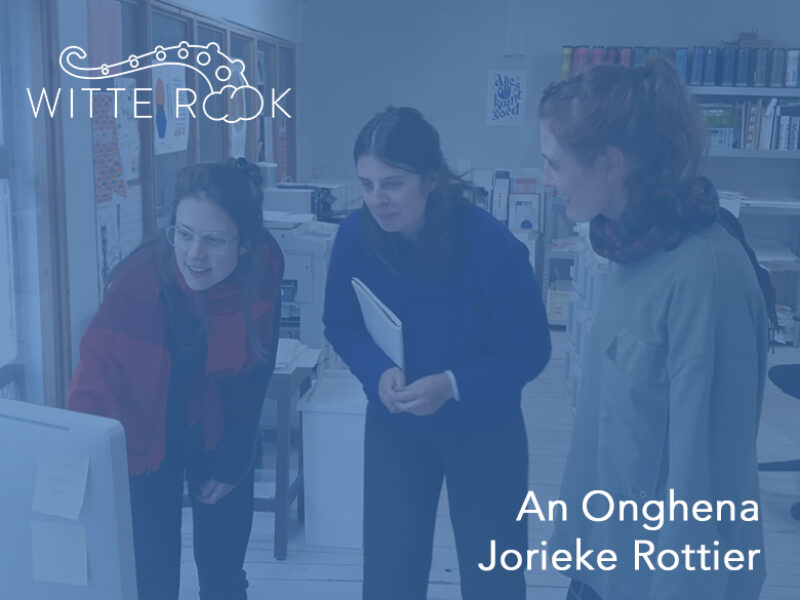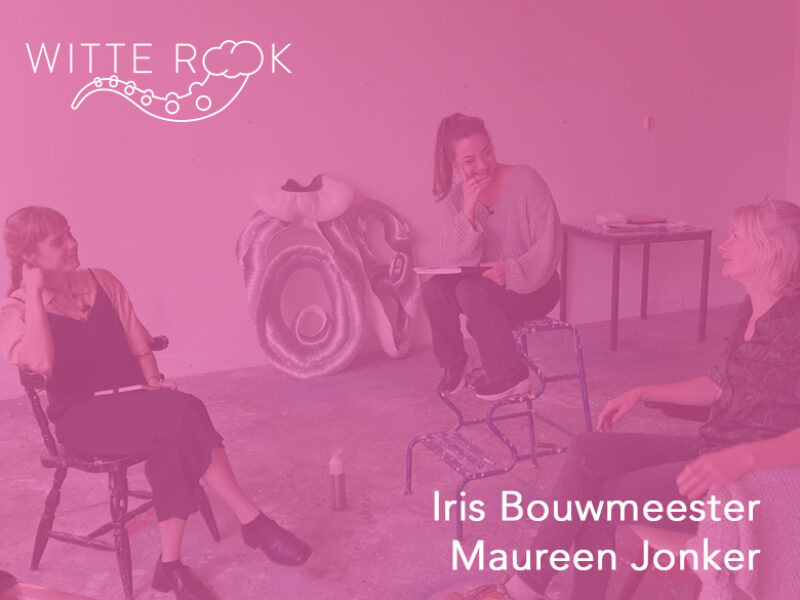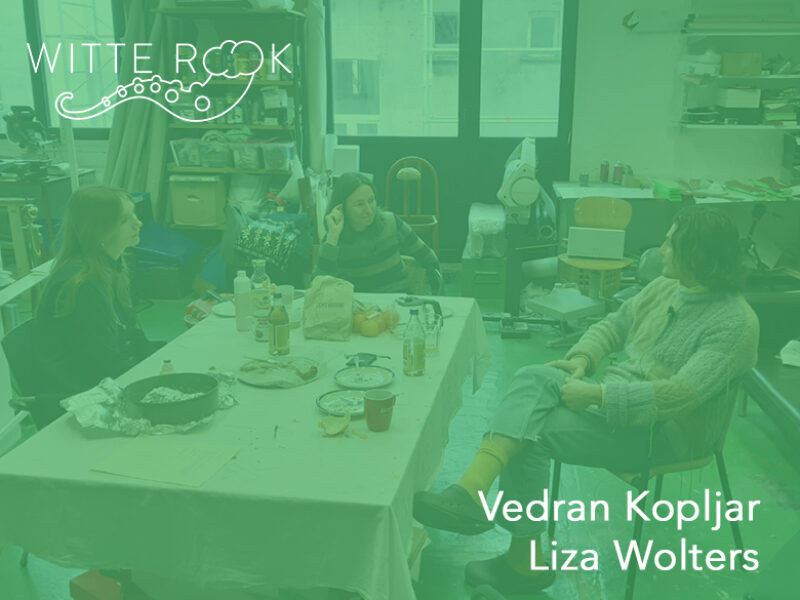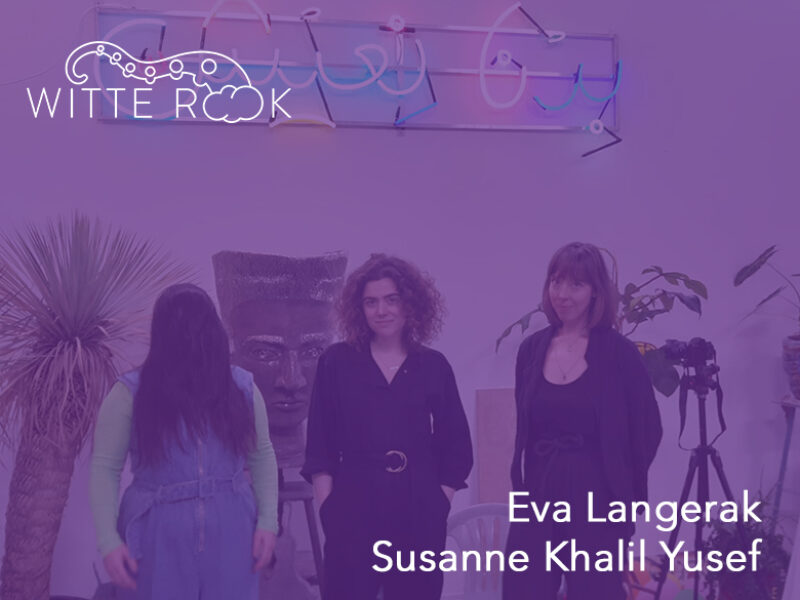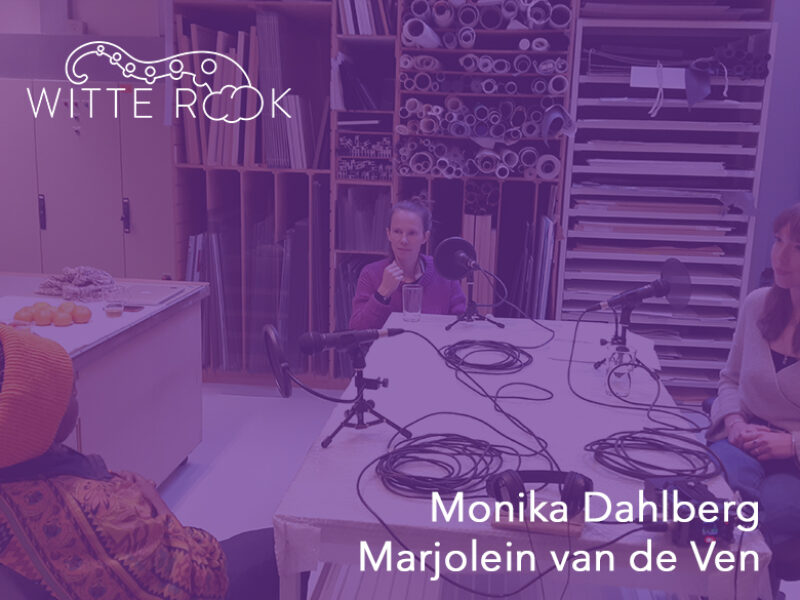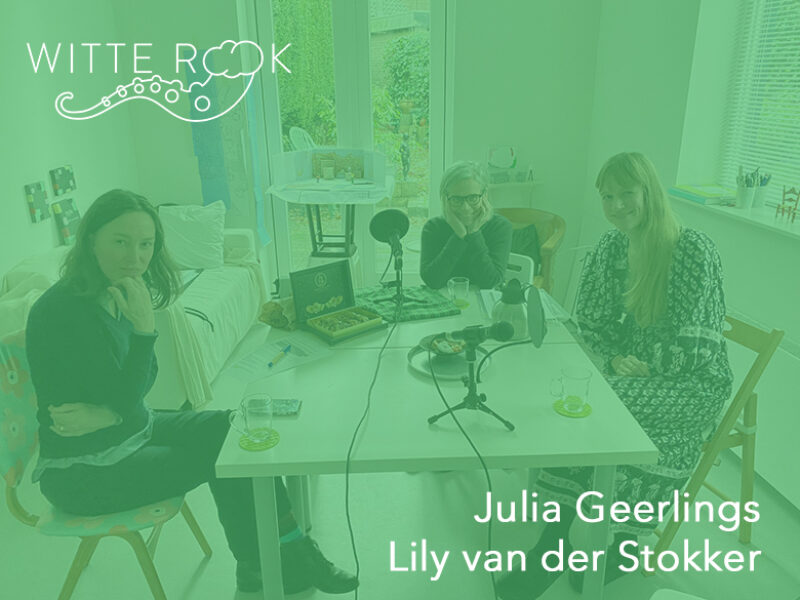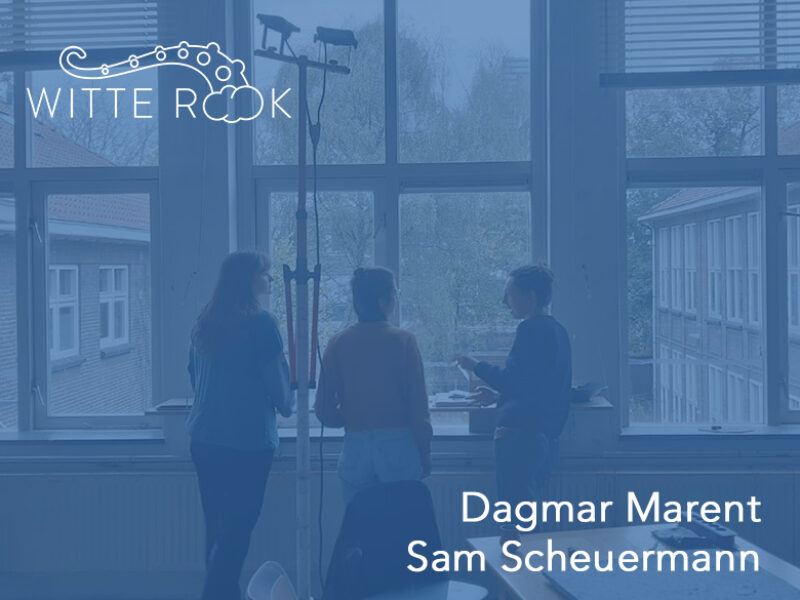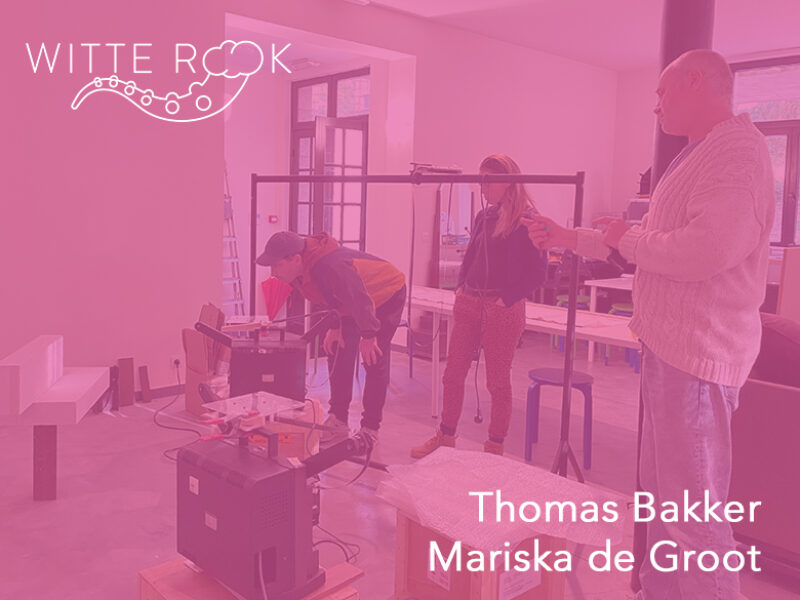Proces is an Octopus
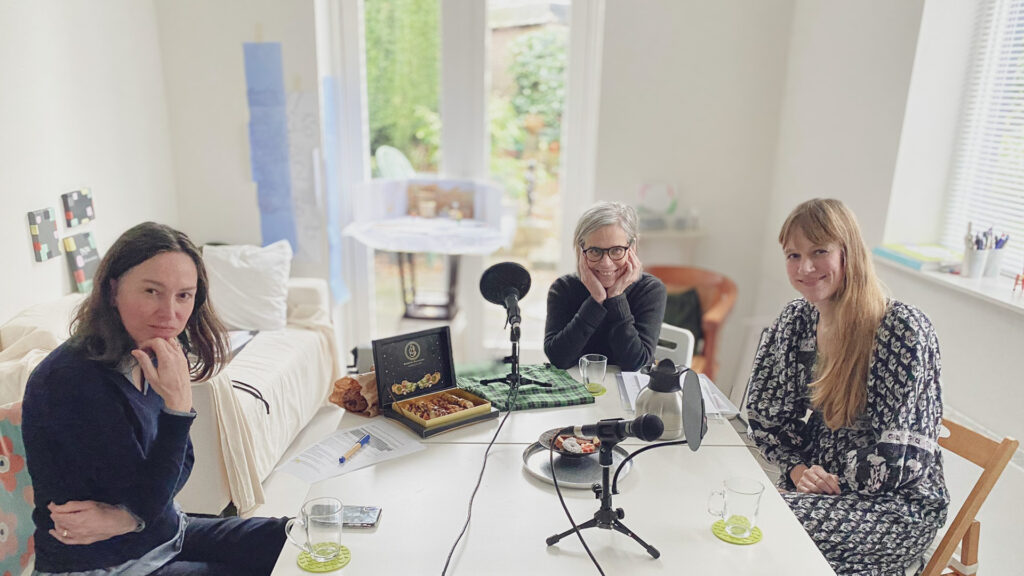
A Podcast Series
The project Process is an Octopus was initiated by artist Nele Brökelmann in close collaboration with the online platform Witte Rook, aiming to contribute to the discourse within the professional cultural field and the conversation around contemporary visual arts in the Netherlands. The project consists of a series of publications in the form of eight podcasts, four reflective essays, and accompanying articles written by the moderators. The podcasts are published weekly from February onwards and can be listened to on SoundCloud and Spotify.
Nele Brökelmann
How do artists share their process through online publications at Witte Rook, and how do they preserve the poetic qualities of their work in doing so? These were the questions with which Nele Brökelmann began her residency as Artist in Residence at Witte Rook in 2020. She used Witte Rook’s online platform as a case study in her research on the role of process within the artistic practice. Framed within the theoretical context of Bruno Latour, the research was presented both visually and textually in essay form. Part of the research included two group conversations led by Nele Brökelmann with Jorieke Rottier, Marit van der Heijden and Esther van Rosmalen. The point of departure – what is the function of an (online) platform – led to a deeper analysis of the meaning of the word process. From this, a foundational text was formulated outlining eight different positions of the process based on the following areas: research, production, presentation and reflection.
Proces is an Octopus
The title Process is an Octopus is based on the metaphor of the octopus, chosen at the start of the project. The octopus represents a living being with eight tentacles, each capable of functioning and exploring independently. It is also a reference to René ten Bos’s book Bureaucracy is an Octopus, in which the elusive octopus (bureaucracy) is viewed as a hyperobject – something so vast and all-encompassing that we are never able to fully grasp its entirety.
The aim of this publication series is to define the various facets of process in relation to the practice of being an artist. We find it important to give context and definition to the term process in connection with the artist’s acts of making, thinking and working. This is also in response to a need we have observed among the artists and organisations we collaborate with. Through this series, we seek to contribute to a better understanding and interpretation of the practical considerations and content-based reasoning involved in artistic processes, while also exploring the social and institutional impact that affects contemporary artistic practice.
With thanks to
The technical side of the podcast is handled by Twan van Bragt. The conversations are moderated by Nele Brökelmann, Esther van Rosmalen, Roeliena Aukema and Eef Schoolmeesters. Each episode features two guests, carefully selected to bring together artists and professionals from different generations and backgrounds, reflecting a diversity of positions within the art field. Each moderator focuses on a specific area: Nele explores research, Esther reflection, Roeliena presentation, and Eef the production process.
Participating artists and curators include: Thomas Bakker, Iris Bouwmeester, Monika Dahlberg, Julia Geerlings, Mariska de Groot, Maureen Jonker, Susanne Khalil Yusef, Vedran Kopljar, Eva Langerak, Dagmar Marent, An Onghena, Jorieke Rottier, Sam Scheuermann, Lily van der Stokker, Marjolein van de Ven and Liza Wolters.
Essays
As a reflection on the eight conversations, we invited four authors to write essays on the four core themes explored in the podcasts. These are written by Zeynep Kubat on reflection (tentacles 3 and 6), Joram Kraaijeveld on presentation (tentacles 4 and 5), Liza Voetman on production (tentacles 2 and 8), and Philippine Hoegen on research (tentacles 1 and 7).

